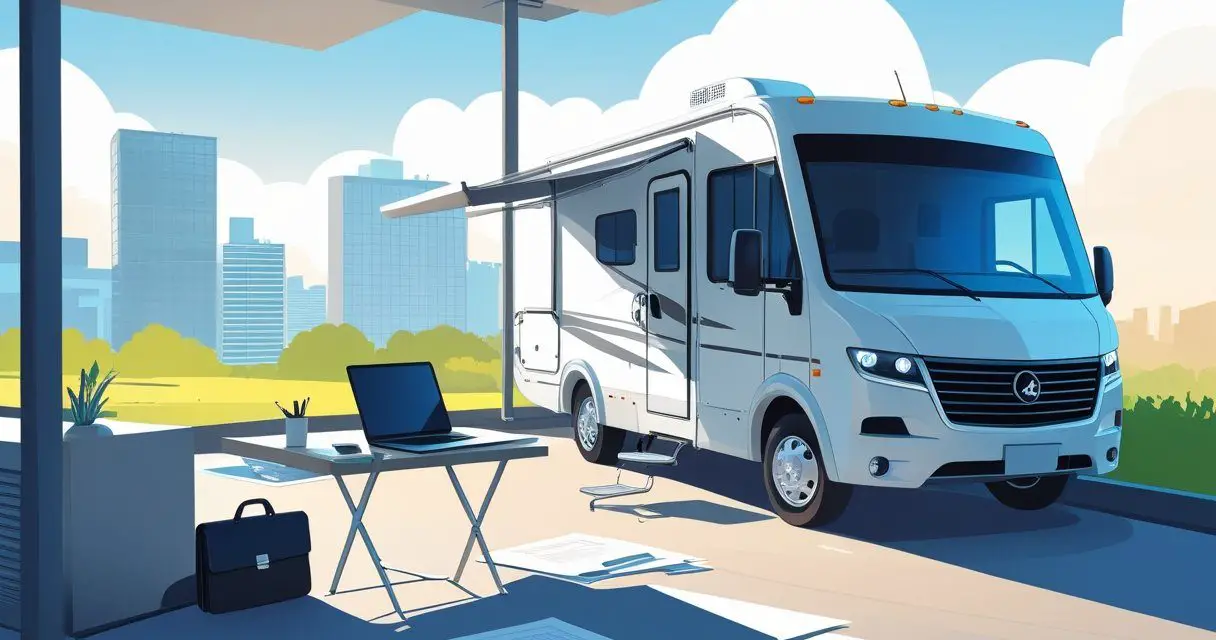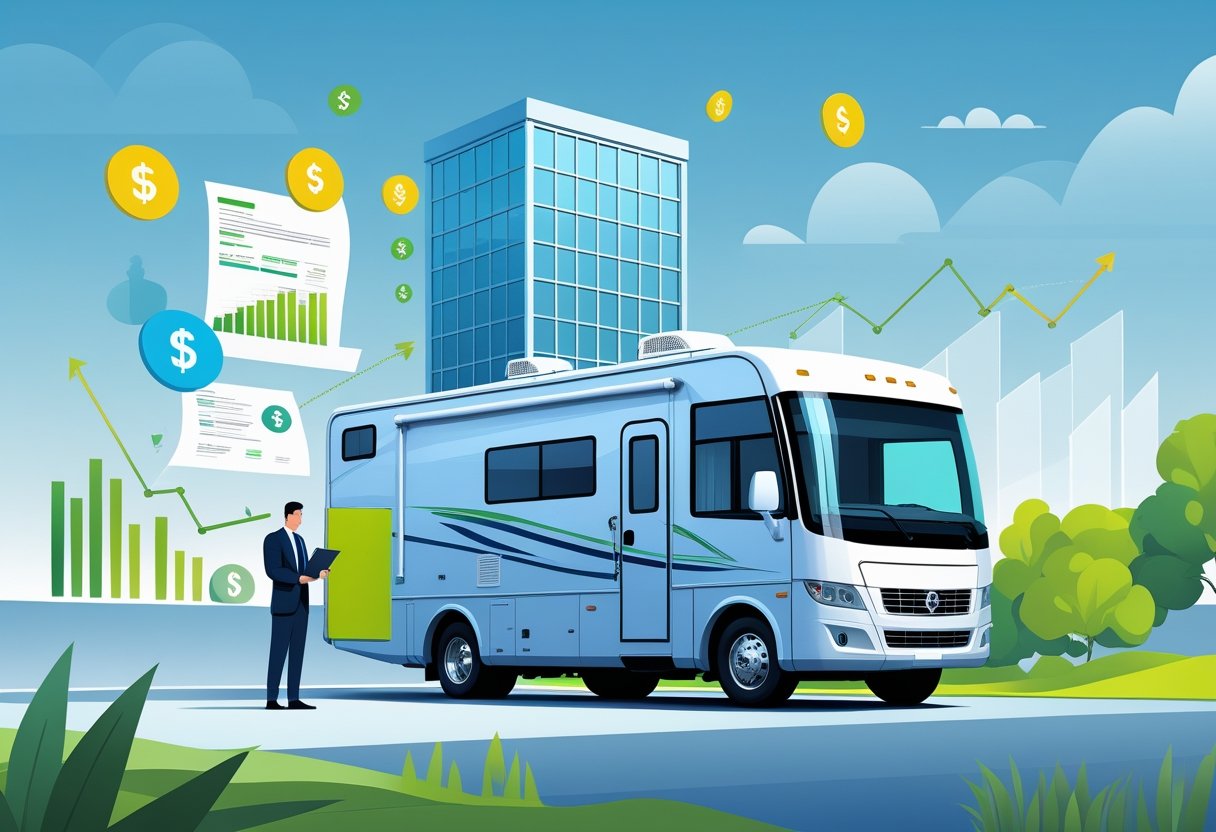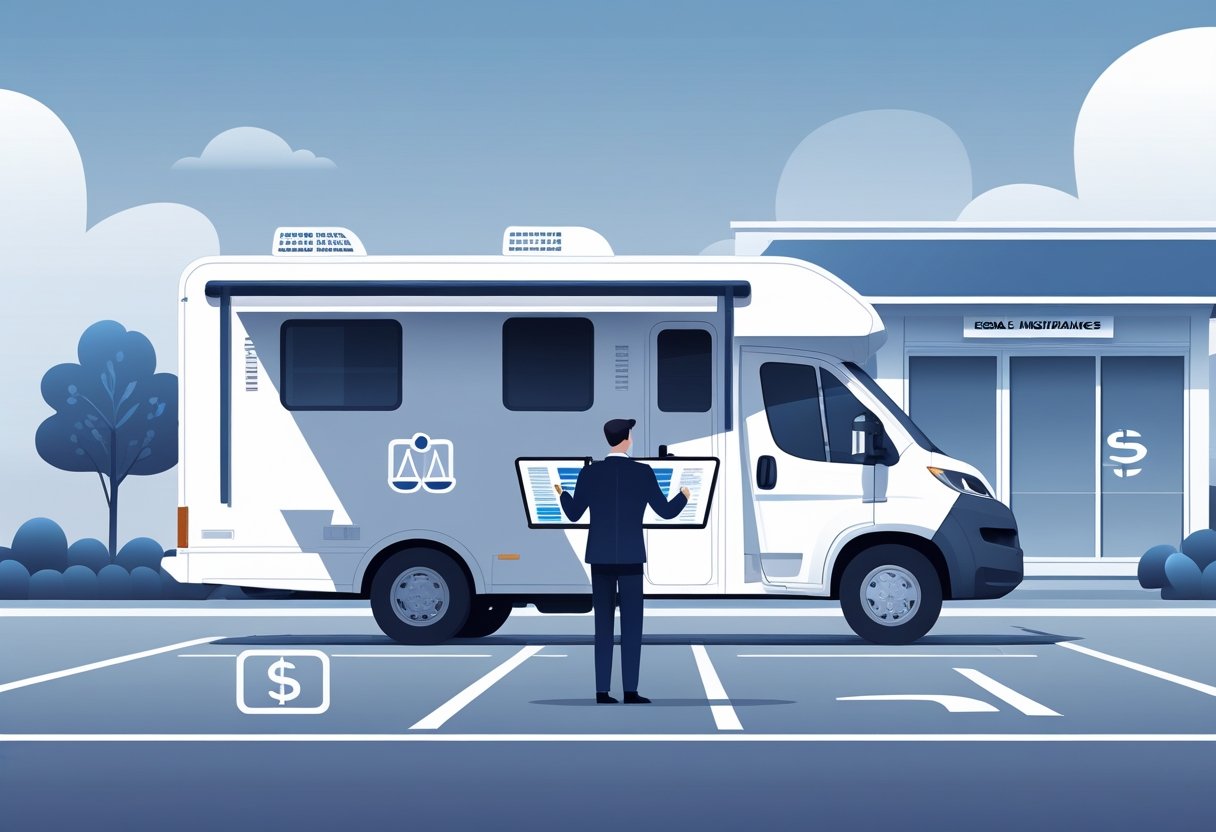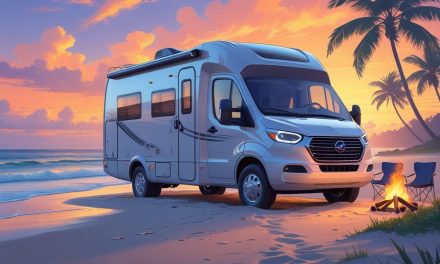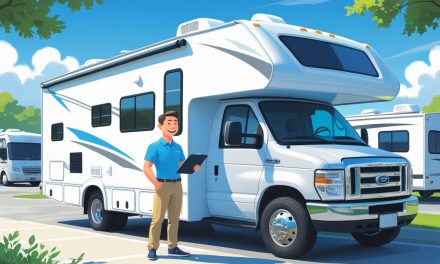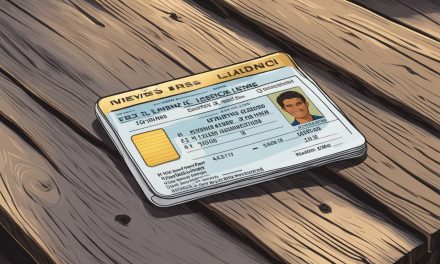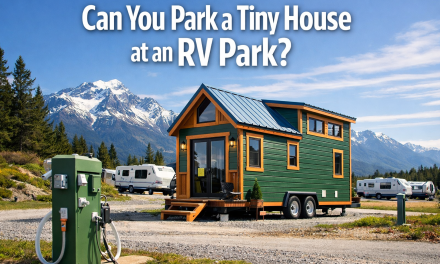If you run a business and own an RV, you might be wondering if it’s possible to use your RV as a business asset. Yes, you can count your RV as a business asset if you use it regularly and primarily for your business needs. This simple answer could help you save money on taxes and open the door to more business deductions.
With so many business owners now working from anywhere, turning an RV into a business asset is something more people are considering. It’s not as simple as just using your RV a few times for work, though—there are rules about ownership, registration, and how much you use it for business versus personal activities.
Before you add your RV to your business, it’s important to know how it will affect your taxes, insurance, and legal responsibilities. Keep reading to find out the key details you need to make the right decision for your business and your RV.
Key Takeaways
- You can make your RV a business asset with regular business use.
- There are tax, insurance, and legal steps to consider.
- Your decision should balance benefits and responsibilities.
Defining a Business Asset
Would you like to save this article?
When you use something for your business, the IRS often calls it an asset. Business assets can include things like vehicles, computers, or tools that help you make money. Knowing what counts as a business asset is important so you can get the right tax breaks.
What Qualifies as a Business Asset?
A business asset is something you buy mainly for work. It needs to have value and last longer than one year. For example, an RV can be a business asset if you use it as a mobile office or for business travel.
To count, the asset should help you earn income or support your business activities. Personal use does not count. You should keep good records to show how and when you use the asset for work. If you use it part-time for business and part-time for personal reasons, only the business part counts.
Some common rules are:
- Ownership: You own it, not rent it.
- Use: Mostly for business, not personal.
- Value: It must have a clear dollar value.
Types of Business Assets
Business assets come in a few main types. The most common are:
- Tangible assets: These are physical things, like vehicles (including RVs), computers, furniture, and buildings.
- Intangible assets: These are non-physical and include items like patents, trademarks, or copyrights.
- Current assets: Things that can turn into cash within a year, such as inventory or accounts receivable.
- Fixed assets: Long-term items that last over a year, like machinery or vehicles.
An RV used for business typically counts as a tangible, fixed asset. This matters because the asset’s type affects how you claim deductions and depreciation on your taxes. You need to know the difference to handle paperwork and stay on the IRS’s good side.
Using an RV for Business Purposes
Turning your RV into a business asset means using it in ways that help run or grow your company. You can drive an RV to meet clients, work from different places, or even sell goods and services from the road.
Business Activities You Can Do in an RV
You might use your RV as a mobile office or workspace while traveling for work. Setting up a desk with a laptop and printer lets you manage tasks, handle calls, or meet virtually with clients. RVs are handy for people in sales, consulting, or freelancing.
Some small business owners run their companies right out of the RV. For example:
- Mobile dog groomers can use the RV as a moving shop.
- Photographers might use the RV as a base for shoots.
- Artists and crafters can travel to fairs and sell from the vehicle.
It’s important to keep records. You should track miles, dates, and what type of work you do in the RV. That way, you can show how much of your RV use is actually for business.
Travel and Mobile Businesses
If your business often requires travel, using an RV helps save money on hotels and dining out. You might travel between different job sites, client locations, or events. Artists, sales reps, and consultants all benefit from this kind of setup.
Some people operate entirely mobile businesses, like:
- Food trucks using RV-style vehicles
- Tech professionals providing IT support on site
- Event planners who set up in various cities
Using an RV lets you reach more customers. You can offer your services in new areas and be present at different markets or trade shows. Keeping the RV stocked and organized also helps you stay productive on the move.
Ownership and Registration Considerations
Using an RV for your business can change the way you handle ownership and registration. It affects paperwork, taxes, and even how you operate the RV day to day.
Registering an RV in Your Business Name
If you want your RV to count as a business asset, you’ll usually need to register it under your company’s name. This means your business owns the RV, not you personally.
To do this, state laws usually require a business entity, like an LLC or corporation. When you go to the Department of Motor Vehicles (DMV), you’ll need your business’s official documents. These might include your EIN, proof of formation, and certificates.
Registering the RV under your business can help with claiming expenses and depreciation on your taxes. It also separates business and personal use, which helps if you ever get audited. On the flip side, some states may charge higher fees or have different insurance requirements for vehicles owned by a business.
Key things you’ll need:
- Business registration documents
- EIN (Employer Identification Number)
- DMV application forms
- Proof of insurance, possibly commercial
Leasing Versus Buying for Business
When adding an RV to your business, you can choose to buy it outright or lease it.
Leasing can lower your upfront costs and free up cash for other needs. Leases sometimes cover maintenance, which can save you time and money. Some leases allow you to upgrade to a newer model more often. But you’re limited by mileage caps or strict usage rules, and the RV isn’t yours at the end.
Buying means your business owns the RV, so you can deduct depreciation and possibly more expenses. There’s no limit on how you use the RV, but you’ll take on more responsibility for upkeep, repairs, and higher initial costs.
| Option | Upfront Cost | Maintenance | Ownership | Tax Deductions |
|---|---|---|---|---|
| Lease | Lower | Sometimes covered | Returns to lessor | Lease payments |
| Buy | Higher | All on you | Yours completely | Depreciation, costs |
Think about your budget, how much you’ll use the RV, and if flexibility matters more than ownership before you decide.
Tax Implications for Business RVs
When you use an RV for your business, there are clear tax rules you need to follow. You can save money with the right deductions, but you must keep good records and meet IRS requirements.
Depreciation Rules
If you use your RV mainly for business, you can claim depreciation. This lets you spread out the cost of the RV over several years as a tax deduction, reducing your taxable income each year.
The IRS often uses the Modified Accelerated Cost Recovery System (MACRS) for RVs, which usually means depreciating the RV over 5 years. To use section 179 and write off a large part in the first year, the RV must be used more than 50% for business and be purchased or converted during that tax year.
Important points:
- Must be >50% business use
- Depreciate only the business-use portion
- Classified as a vehicle or office? How you use it changes the rules
Use accurate logs showing business vs. personal use so your deduction is valid.
Deductible Expenses
Besides depreciation, you can deduct other costs linked to your RV’s business use. These include:
- Fuel, maintenance, and repairs
- Insurance for business use
- Loan interest (proportional to business use)
- Parking fees and campground costs for business stays
- Supplies and certain business upgrades
Each expense must be directly related to work. If you mix business and personal trips, only the business percentage counts.
Keep every receipt and document where, when, and why the RV was used for business. Staying organized helps if the IRS asks for proof. A simple table or mileage log can make tracking easier.
Legal and Insurance Requirements
Turning your RV into a business asset means following certain rules for insurance and legal coverage. You need to know about commercial policies and what the law expects from you to stay on the safe side.
Commercial Insurance Policies
Regular RV insurance usually covers personal use, not business activities. If you use your RV for business, like mobile offices or rentals, you’ll need a commercial insurance policy. This insurance protects you if something goes wrong during business use, like accidents or property damage.
Commercial policies also cover employees and business guests, which personal insurance will not. Here’s a list of things to double-check:
- Coverage limits: Business assets may need higher liability limits.
- Policy details: Look for protection against theft, fire, and vandalism during business activities.
- Proof of business use: Keep good records of your business trips and clients.
Before starting business operations, talk to an insurance agent. They can help you pick a plan that matches how you use your RV.
Liability and Compliance Issues
Using an RV as a business means you must follow more rules. States may require extra licensing, depending on what your RV is used for, like renting or transporting goods.
You are also responsible for the safety of customers and employees while they are in or around your RV. If someone gets hurt, you could be held liable. That’s why having the right coverage is so important.
Check local rules about parking, zoning, and signage. Some locations restrict where commercial vehicles can be stored or used. Fines and penalties for ignoring these laws can be costly, so review the local regulations before you launch your RV business.
Pros and Cons of Making an RV a Business Asset
Turning your RV into a business asset has clear financial advantages, but there are also some real challenges to keep in mind. You can get tax savings and more flexibility, but you might also deal with stricter rules and extra costs.
Benefits for Entrepreneurs
You can claim tax deductions by using your RV for business purposes. Things like fuel, maintenance, and depreciation may be written off on your taxes if they qualify as business expenses. This can help you save money every year.
Flexibility is another big plus. You’re able to travel for meetings, events, or mobile services—your RV becomes your office or even your workshop. If you rent the RV out to others, you might generate extra income, making your business more versatile.
Your RV can be listed as a company asset. For some, this means building business credit or making your business look more robust, which could help if you want to borrow money or bring in investors.
| Benefit | Description |
|---|---|
| Tax Deductions | Write-off depreciation, fuel, and upkeep |
| Mobility | Take your business on the road |
| Rental Income | Earn money by renting out your RV |
| Asset Listing | Adds tangible value to your company |
Potential Drawbacks
IRS rules for business assets are strict, so you’ll need clear records proving the RV is used mostly for business, not personal trips. Mixing personal and business use makes it harder to claim deductions and could cause problems if you get audited.
An RV usually loses value over time. This depreciation can be a tax write-off, but it also means your asset isn’t gaining value like real estate might. You may pay higher insurance, registration fees, or even extra taxes if your state treats business vehicles differently.
Upkeep and repairs are ongoing costs you can’t ignore. If you finance your RV, it’s also counted as company debt until you pay it off. These extra expenses can eat into your profits. Make sure to talk with an accountant before making a decision.
Best Practices for Managing a Business RV
When you use your RV for business, it’s important to keep clear records. Track the mileage, maintenance, and all expenses separately from your personal trips. This helps if you ever need to show proof for tax reasons.
Set up a simple logbook or use an app to record when, where, and how you use the RV for business.
Example of business use log:
| Date | Purpose | Mileage | Notes |
|---|---|---|---|
| 05/12/2025 | Conference Trip | 210 | Met with new clients |
| 06/01/2025 | Work Event | 180 | Attended trade show |
Only use your RV for business when needed. If you mix business and personal travel, split the costs based on how much of the trip was for work. This makes your tax deductions more accurate.
Keep receipts for repairs, fuel, insurance, and other business expenses. Store these in a folder or scan them to a secure digital drive.
Review your records often. This makes tax filing simpler and helps you spot any missed expenses.
If you want to claim depreciation on the RV, check the IRS guidelines and update your accountant. The rules can be different compared to a typical car or office equipment.
Ask a tax professional for help if you’re not sure how to handle RV business expenses. They can help you avoid mistakes.
Real-World Examples of RVs as Business Assets
You might be surprised at how many ways you can use an RV for business. It’s not just for road trips. Here are some real ways that people put their RVs to work.
1. Mobile Office
If you work remotely, an RV can act as your office. For example, a freelance photographer might use an RV to travel to clients and edit photos on the go.
2. Mobile Retail Shop
Some people turn their RV into a shop on wheels. Artists or crafters can sell goods at fairs, markets, or festivals using the RV for storage and display.
3. Temporary Employee Housing
Construction companies or event businesses may use RVs to house workers on job sites, especially in remote areas. This saves on hotel costs and gives your team flexibility.
4. Business Travel and Meetings
If you regularly meet with clients in different cities, an RV can be a practical way to travel. You can hold meetings inside, stay overnight, and avoid the hassle of hotels.
Example Table
| Use Case | How RV Is Used |
|---|---|
| Mobile Office | Work space on the road |
| Retail Shop | Sell products at events |
| Employee Housing | Temporary staff lodging |
| Client Meetings | Travel and meet clients |
RVs can serve many business functions if they are used mainly for work purposes. Just be sure to keep good records of how you use the RV for your business.
Alternatives to Using an RV as a Business Asset
If an RV doesn’t fit your business needs or feels too complicated for tax purposes, there are plenty of other choices.
Leasing vehicles is a simple option. You can lease a car, van, or truck just for business use. Leasing usually means lower upfront costs and fewer headaches about depreciation.
Business travel by plane or train is sometimes better. You can deduct tickets, lodging, and meals when you travel for work. This can be less work to track than taking care of an RV.
Consider hotels or short-term rentals for trips. Instead of using an RV for business trips, you can stay in hotels or rent homes. These costs are often deductible if the trips are for business.
Using a personal vehicle for work is still common. You can track your mileage or actual expenses and claim a deduction at tax time.
Here’s a quick comparison:
| Option | Upfront Cost | Record Keeping | Flexibility |
|---|---|---|---|
| Buying an RV | High | Complex | High |
| Leasing a car/van/truck | Medium | Simple | Medium |
| Personal vehicle for work | Low | Simple | High |
| Hotels/Short-term rentals | Pay as used | Moderate | High |
Renting office space or coworking spots can also keep you off the road. These places often have Wi-Fi, printers, and meeting rooms.
Pick the choice that fits your budget and business style. Each option has its own rules for what you can write off on taxes.

